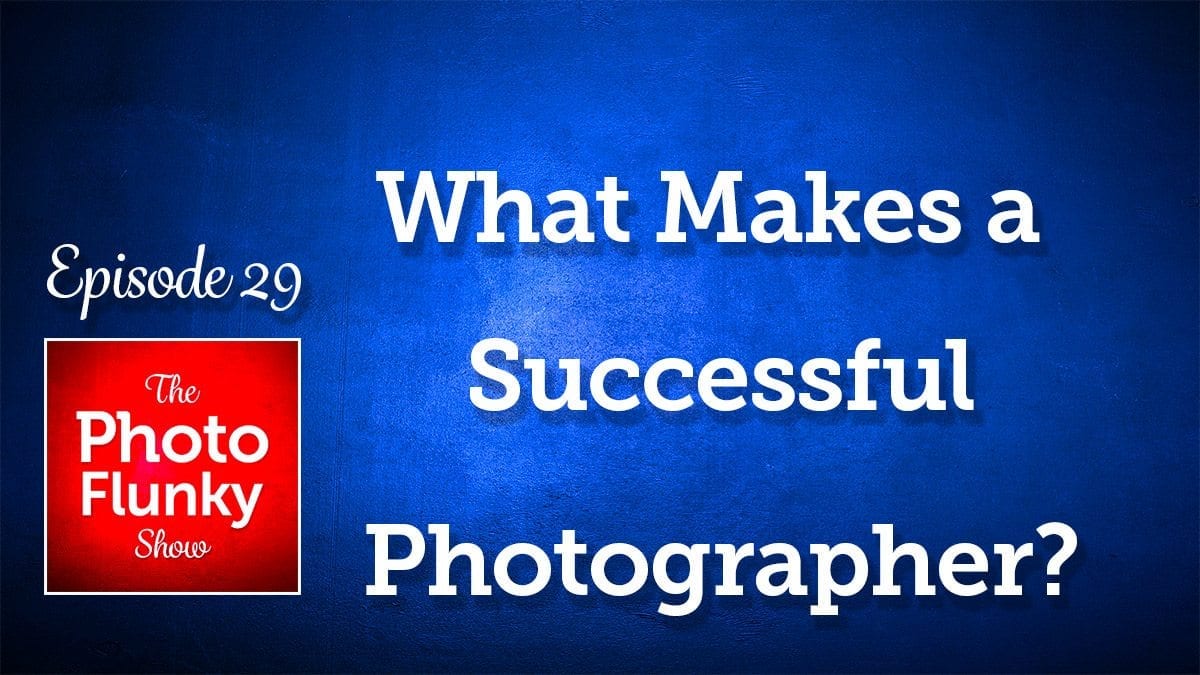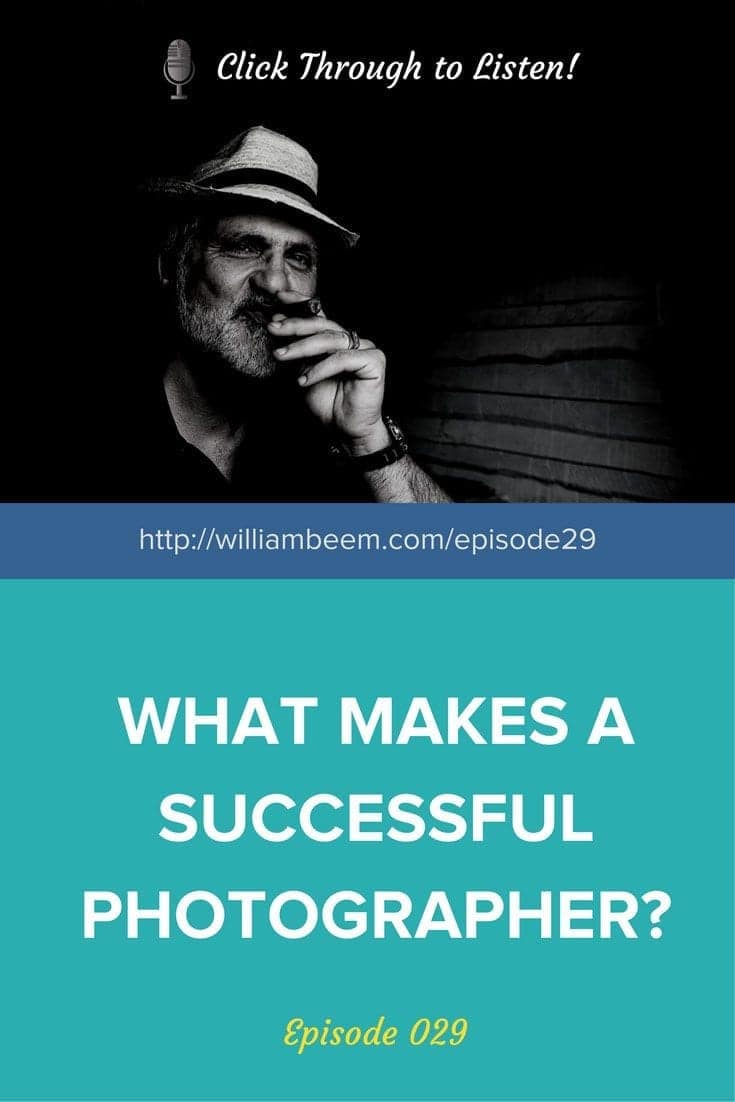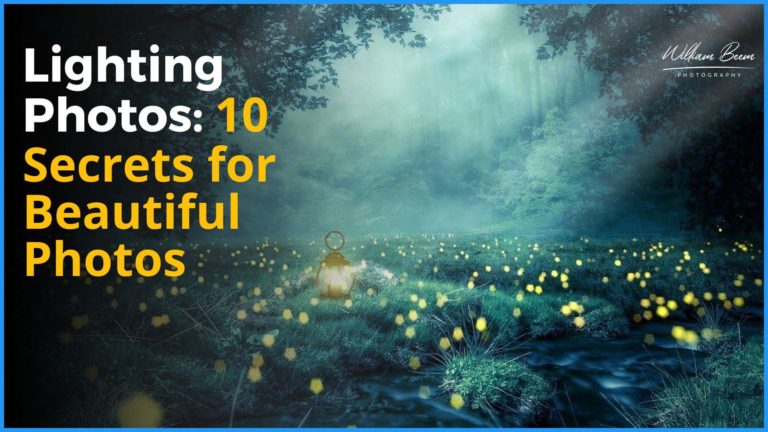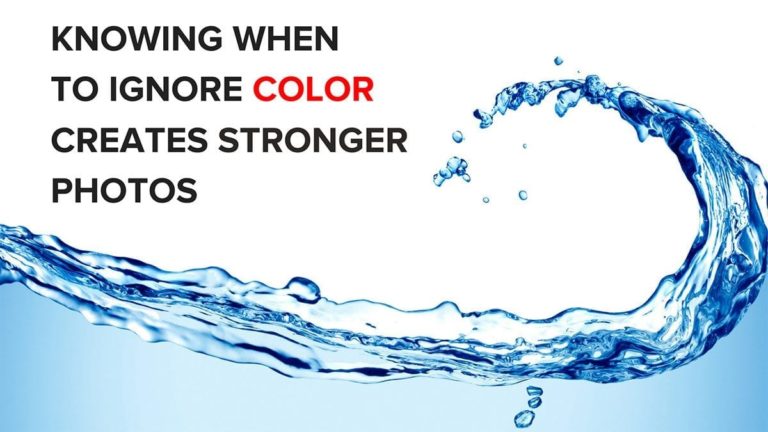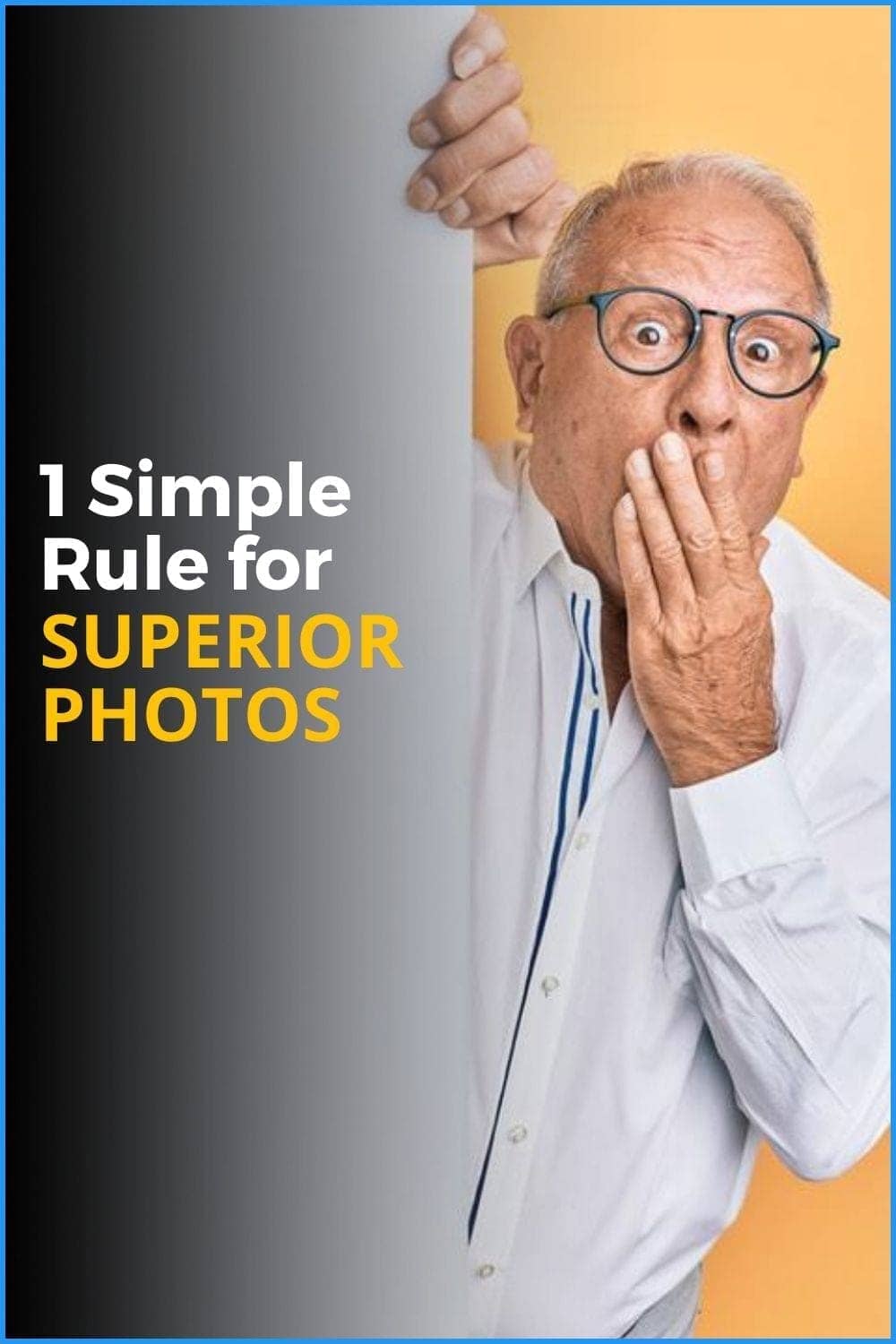Affiliate Disclosure: We earn a commission if you purchase through one of our links at no additional cost to you.
Is a Successful Photographer Really What You Think?
Welcome to episode 29 of The Photo Flunky Show!
When you think of a successful photographer, what comes to mind? Working with celebrities, traveling the world, or heading out into the wilderness on your own with your camera in tow? Maybe you can be a completely successful photographer without anyone else ever knowing it.
Lee and I discuss some of the factors that can make up success, or just give off the illusion of success. We’d love to know your thoughts on the matter.
Please tell us in the comments what you think it really means to be a successful photographer.
Macphun Coupon Code
This is my affiliate code, which means that I make a small commission if you purchase from me, but it also means that you save money.
For Macphun products like Luminar and Aurora HDR, you save $10.
For other Macphun products, like the Creative Kit, you save 10%.
Just visit: https://williambeem.com/macphun
When you check out, use my Macphun coupon code: BEEM
Subscribe to The Photo Flunky Show
Thank you for listening to The Photo Flunky Show. Make sure you get every episode by subscribing.
iTunes – https://williambeem.com/itunes
Stitcher – https://williambeem.com/stitcher
Google Play – https://williambeem.com/googleplay
Blubrry – https://williambeem.com/blubrry
Social Media Links
We love seeing your photos and keeping in touch with you on social media. Here’s where you can find us.
Transcript
THE PHOTO FLUNKY SHOW: Episode 29
Welcome to the Photo Flunky Show, Episode number twenty-nine.
Today we’re talking about what makes a successful photographer.
William: Hi! Thanks for joining the Photo Flunky Show. My name is William Beem.
Lee: Hi, I’m Lee.
William: Today we’re going to be talking about what makes a successful photographer. But before we get into that, I want to tell you I’ve got a coupon code for you for MacPhun software. If you’ve got a MacIntosh computer and you want some good post processing software, head over to williambeem.com/macphun You get a ten per cent discount and I get a little bit of credit back from them. Just use the coupon code BEEM and it will save you a little bit of money.
Also, show notes are going to be available at williambeem.com/episode29. You get a free transcript there if you want and of course you can also find links to subscribe to the show. And if you just want to check out some of our other shows, that would be great. Go to photoflunky.com.
Alright, let’s start off with our little topic for today. Criteria for success, or what makes a successful photographer. That’s kind of all over the place in a way.
Lee, when you think of someone who’s successful, what comes to mind for you?
Lee: I think that depends on the objective. For me, I’m successful and pretty much nobody except my family and friends know of me. I don’t share my photos all over the place and when I do I don’t share very many of them, so I couldn’t say that I’m popular or anything like that in the world of photography. But I feel I’m successful because I meet my objectives and I enjoy doing it. That is the bar that I’ve set for myself for success.
William: So one of the things we were thinking about in photography is: do you have to be in business to be successful?
No?
Lee: No.
William: But you can be successful if you’re in business or if you’re not in business. So we are trying to get down to what it is exactly that makes someone successful. And that word is a little bit – I don’t want to say it’s misleading – someone who is successful is someone who is achieving some kind of a goal or objective, but are they achieving it in their own mind or are they achieving it in the eyes of the other people who are paying attention to them?
Lee: Well, I think there are two things going on there. You could see yourself as a success or failure and others could, and often do, see you very differently. You know, somebody who is aspiring to take photographs that they think are a certain level of quality and they are not quite there yet – if they are looking at yours, they are going to see you as a success. You might not be where you want to go or achieving the goals you set out for yourself, and at the same time you could be seeing yourself as a failure. So I think it’s very subjective and it’s not just coming from one direction.
William: Well, you mentioned quality. Let’s start off with that. Let’s talk about quality of work.
When you are looking at photographs, and not necessarily from someone you know, are you determining if someone is a successful photographer based upon how well they can do an exposure, how well they can do the composition, how interesting the photo is? What is it about the quality of work that you think is really making someone successful.
Lee: Well that’s a bit of a tricky one because I think for me quality … I’m going to look at quality and judge it based on my taste in photography subjects, genres and styles, post processing styles that I like; I like color, I like something that’s a bit more realistic looking. There are certain subjects that I prefer over others so I’m going to judge quality based on that.
Having said that, I am very capable of looking at a photo and saying, “That’s not my thing, but I think it’s absolutely brilliant!” I think we looked at a landscape the other night. It was a sunset or there was a sunburst or something and it is completely not my sort of thing, but I looked and thought that is just a great photo.
William: See that’s what I was getting ready to disagree with you a bit. Because my own tastes aren’t necessarily the criteria for success.
There are things that I like and there are things that I don’t like, but I can recognize when someone has done a very good job, even if it’s a subject I don’t like or if there is a post processing or even a photography technique that I don’t like. But if it’s been executed very well and the photograph works for whatever style it is or for the person’s own style, I think that kind of shines through and you recognize it and I think that is a mark of success because if you’ve got that level of quality of your work and people are paying attention to it, even people that don’t necessarily go for what you’re shooting, they can still come back and say that it is good for what it is. I think that is successful.
Lee: I think so too and I think quality goes beyond just how well it’s done and how well it’s been put together and finished off and presented, if you’d have it that way. I think …. I’ve just completely lost my train of thought!
William: OK, well we’ll keep working on successful podcasts one of these days.
Lee: Yeah, I’ve got a long way to go.
William: That’s alright. You can tell I’m not successful because I’m picking on my wife!
Lee: She’s cool with that.
William: But we were talking about quality of work versus success. Some things I don’t really go for in a photograph is when there’s too much flare in there or it’s kind of very low contrast. It’s a popular thing to do these days. It is not my style; it is not something that I really enjoy. Yet I have seen photographs used commercially and also shared by amateurs on Flickr and I look at them and think, that really work for what the style of photograph is and the subject and everything else. Even though it’s not the thing that I would do myself, I can see something that really works and I’m thinking, OK. That’s a success.
Lee: I agree with you. What I was going to say is, it goes beyond that though with the quality. I mean we are talking about the things that are to our taste and the ability of stepping back and recognizing a good photograph even if it’s not something that we would usually go for.
I think it’s fair to say that the majority of people viewing photos are often not photographers and they don’t look at it that way. They are going to go for the kind of things that interest them. So they are going to judge on a completely different basis.
So quality, again, is another subjective thing.
William: It’s subjective, but quality is almost like art. You know it when you see it. Or that’s not the saying. It’s not art that I know it when I see it; it’s like I can’t define pornography, but I know it when I see it.
Lee: Ohhh!
William: Maybe I can’t define success, but I know the quality of work when I see it. Something about it stands out. Even if you can’t really put your finger on what it is, if it’s got your attention for some reason (and it might be some psychological reason that you’ve never even considered before) if it works, it works.
Lee: It does. And I think once you develop your own level of quality or you develop your own style as well and you almost have your signature trademarks. To me that also comes under the umbrella of quality and it’s a form of success when people can look at something and say, “That looks like one of William Beem’s photos.”
William: That’s certainly flattering if someone can say that about any photographer, but it’s also something that has to be repeatable. I think if you’re going to call yourself a success or if you want other people to think you’re successful based upon the quality of your work, it can’t be just one off here and there. You need to have a pattern or a body of work that is showing that same level of quality.
Lee: Yeah. Consistency.
William: So let’s take a look at another thing that people often think of as success and that would be financial success. In other words, are you not only taking photographs, but are you making your living out of it? Even more than making a living out of it, are you living well because of your photography?
Lee: I have never had any aspirations to make money out of my photos or to have a photography business so to me, that is not a success. Having said that, if I had a photography business or I was doing this for money then absolutely, yes! My success would be defined by whether I could cover the costs and come out with something over and above. And then again, how much?
William: I know there are a lot of photographers out there who are doing it for the love of it. There are some who have taken that a step further and gone into business and meeting with varying degrees of business success.
Then there are some who are really very successful. They are very well known. They are putting out, for the most part I think, quality work.
But after a while I’ve watched a couple of people that I think are just putting out work and the quality is not exactly what it used to be, but yet they are still, I would imagine, financially successful.
Lee: I think that is where business or financial success and success as a photographer might not be one and the same thing.
William: Well, it’s a good point because if you’re going to have your name out there as someone who is earning a high fee for when you do work. You are putting on a nice little show when you do things; you’re hiring a large staff when you come in there, which is taking up a lot of the large fee that you’re charging. You had better come up with astounding results every time you do it.
And one of the names that people like to pick on, but I kind of think along that line would be Annie Leibovitz. She was hired for the Disney live action portraits and she’s done a series of those and she comes in, she’s got a large staff, she’s got a wonderful crew of talented people doing things and then she’s got beautiful hair, make up, costume design and all those other things going for her that Disney obviously wants to make sure it looks like that. And the photographs are stunning. Is that a success?
Lee: I would say yes.
William: Well you put all those resources behind something, you would expect that. Are you almost guaranteed success if you have all those resources behind you?
Lee: No. I don’t think you are guaranteed success. I think your exposure – I mean photographing for Disney, you’ve already got a leg up on the ladder (or six).
William: Well you’ve got to be good in the first place to get to that mark if you’re going to be doing it for a major campaign.
Lee: That’s true. You’ve got to have work that is of a certain standard. So I would say yes, but I don’t think it’s cheating in any way to have that team and staff behind you. If that is part of what makes the final product and you have it …..
William: I don’t think it’s cheating at all. If you look at commercial photo shoots there is going to be a crew out there. There is going to be not just a photographer, but there is going to be assistance for the photographer. There are going to be hair and make-up people, there is going to be catering, even, for these photo shoots. There is a crew behind a lot of successful commercial photo shoots because they want it to be successful. You are going to be paid, hopefully if you’re charging the right amount to cover all that stuff, you’re going to be paid well for it because the bottom line of what that photograph was meant to represent is going to bring in a lot of money for your client.
Lee: That’s true, but if you only have one client and your whole business is built around that, that’s also like having all your eggs in one basket.
William: Well that’s bad business and I’ve made that mistake before in some other ventures that I had. Not photography, but if you have all your eggs in one basket and your client is the big one and they are taking up all your time and you’re doing great work for them, one day they are going to decide they want to go in a different direction, they’re going to get a new boss, something is going to happen and they are going to say, “Thank you very much, but we don’t have anything for you right now.”
Lee: Exactly. Especially these fast moving businesses. Disney is one of them. They make changes with eleventh hour notice.
William: And let’s go back to the Disney example. They’ve got these wonderful photos from Annie Leibovitz, but at some point they are going to want to have a change in art direction. So the same thing is not going to apply. And that’s expected, I would think.
Lee: I would think so. And also trends change, seasons change. It’s like fads and fashions. Things come and go. So the style of the models or the scenes that are being shot are going to change somewhere along the line as well.
William: I think it’s hard for people outside a photographer’s business to know just how financially successful or unsuccessful a person is. But if you’re looking at yourself and you want to decide, am I financially successful? It may not just be because your bank account is full right now. You look at your portfolio of clients and what is your work going to be a year from now; five years from now; ten years from now? Is that same client going to be carrying the whole way or could they possibly say, thank you very much and go with a different vision this time? Are you really successful if you’ve just kind of got everything in one basket?
Lee: I think most photographers probably don’t do that though. They have clients who come in for once or twice events or whatever the case may be or they’ve got somebody who regularly shoots their PR stuff. I guess it really depends, but bottom line, yeah I wouldn’t feel confident putting my business on the foundations of somebody else’s.
William: On the other hand, I can look at someone who is not doing major commercial work like that; he or she is doing a steady stream of work, maybe in their local community and maybe some local commercial busness. And maybe they are not well known but they have got a good job, they’ve got a nice diverse income from multiple clients. I’d say that person is probably more successful than somebody who has a higher end client but only one of them.
Lee: They are certainly usually more stable, I would think. I mean you don’t need to be nationally or internationally known to be a success.
William: I would think so.
And that brings us up to the next one. Are you successful based upon your popularity?
Lee: Well that’s another one where I’d say yes. You could define your success based on that.
I mean there are photographers who I came to know and they have become common names in my little photo circles because I regularly saw and admired things that they had posted on places like Flickr. You get to know the stuff. You start to follow them. You start to take an interest in their work, you find out they’ve got a website or a blog and you start to watch what they are doing and enjoy it.
William: I think I kind of go back to the example of what we said about the quality of work and I’ve mentioned it before and on my blog.
Pagles out at – was it Springdale, Utah? I think she’s near Zion National Park. She is not really taking on clients and customers. She is doing her photography for her own, but she’s got a consistent body of work, she’s got a very recognizable body of work and other photographers in the community, particularly on Flickr, know who she is. They can look at a photo and say, oh that looks like something Regina shot.
I’ve never met her before, but she is popular, I believe, and she is good. And to me I would say that she’s successful, even if she’s not charging anything for what she does.
Lee: Yeah, she’s successful but she’s not doing this for the money.
William: I don’t even think she’s doing it for the popularity. I think she is doing it simply for the love of what she does. But because of that, she’s put out great quality of work. She’s put out some tutorials to show how she does what she does. And she has gotten a certain sense of popularity out of it and she’s done guest posts on Scott Kelby’s blog before.
I thought, to me, that’s a person who isn’t necessarily considered a professional because she’s not going and making her living out of this (unless things have changed recently), but I still see her as a success.
Lee: I would say that’s a success.
William: On the other hand, there are other people that I think are much more popular, and I’m not sure if they are quite as successful because of their popularity or if their popularity is driving more than their quality of work is for their success.
Lee: I don’t know. This is just such a broad topic, isn’t it? There are so many ways to approach it.
William: It really is. And I think what it really comes down to is satisfaction with what you do.
Lee: Yes! Now that’s my ultimate defining line for success.
William: It’s whether you’re satisfied with the quality of your work. Are you satisfied with your financial success or even popularity? There are plenty of people who get happy if they are considered an Editor’s Choice on 500px or get to Explore on Flickr. That sort of thing makes them happy. But that happiness is satisfaction that other people have recognized their work. Even if it’s only one image.
Lee: You talk about the Explore on Flickr. I remember one of my photos getting on there. I didn’t even know what Explore was and all of a sudden I had these notifications going. I suppose I would have enjoyed the moment more if I had known what it was. So I had to go and search to find out what Explore was because I saw this little note that my photo was on Explore. And it was the most crazy photo as well. it was one that had almost been culled because it was just kind of … uh!
William: So you got a little bit of popularity for a moment. Or at least one of your photos did. Did that in itself give you any satisfaction? It was fun while it lasted. I think I was more bewildered than anything else because I didn’t have a clue what was going on. I mean in all my ignorance I just was completely naive about it.
Lee: As far as satisfaction, it was short lived. It was an experience. It was live in the moment and I forgot about it. It certainly didn’t do anything for me and it didn’t define who I was. It was kind of a bit of a giggle because I felt really silly afterwards.
William: And that’s kind of the way I look at the popularity thing. It’s kind of come and go, you know, just like a breeze.
So to me the satisfaction – if you’re happy with what you’re doing, whether it’s the quality of work, financially or even with a popular moment or ongoing popularity – to me that’s really what it comes down to. If you want to be successful, you need to be satisfied with what you’re doing.
Lee: You need to enjoy it. If you’re not having fun, unless you’ve got a business and you need to pay the bills from your photography, I think if you’re not having fun you’re missing the boat somewhere.
William: Well satisfaction doesn’t always have to be fun. Like you said, if you are paying the bills, you might be satisfied that you are going out and doing quality work and you’re able to provide for your family or provide for yourself. Whatever that may be, that is satisfying in itself.
A job well done, even if it’s not necessarily something that you think, “Oh, I’m going to go and have a blast doing this.”
Maybe you can have both together, but satisfaction I don’t think has to be necessarily how much fun you had doing it.
Lee: But you have a sense of achievement in what you’ve done and I think that is really important.
William: Yeah, I think so. I think when you’ve got that sense of satisfaction because you’ve got a sense of achievement, either because you’ve done something for yourself, you’ve helped somebody else, whatever the cause is, you get to that spot. Then I think you’re successful.
Lee: And your goals can change. Your motivation can change on the fly, as it suits you.
William: That’s our thoughts on what makes a successful photographer. We’d love to know what you think. Leave us a comment at williambeem.com/episode29 and we’ll see what you’ve got to say.
Thank you once again for joining us on the Photo Flunky Show. We’ll see you next week!

